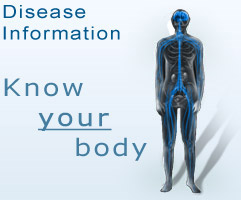Epilepsy
What is epilepsy?
Epilepsy is a condition of the nervous system that presents as seizures. A seizure is a sudden surge of electrical activity in the brain that usually affects how a person feels or acts for a short period of time. These feelings and actions range from subtle experiences of unusual odours to the commonly known ‘fit' (jerking and spastic contractions of the limbs). The tonic-clonic (generalised) seizure of epilepsy is usually followed by a period of confusion.
Epilepsy is typically diagnosed after a person has had at least two seizures that were not caused by some known medical condition like alcohol withdrawal or extremely low blood sugar.
Who develops epilepsy?
Epilepsy can start at any age and has no gender predominance. New cases of epilepsy are most common among children, especially during the first year of life. The rate of new cases gradually declines until about age 10, and then becomes stable. After age 55 or 60, the rate starts to increase, as people develop strokes, brain tumours, or Alzheimer's disease.
How are seizures classified?
Epilepsy is divided into generalised and partial seizures.
A generalised seizure originates from electrical brain dysfunction in both cerebral hemispheres, i.e. from both sides of our brain, and has symptoms of confusion after the seizure has occurred. Types of generalised epilepsy include tonic-clonic and absence seizures.
Partial seizure occurs as a result of a single focus on one side of the brain and is further classified into simple and complex partial seizures. Partial seizures may progress into generalised seizures and are then termed secondarily generalized partial seizures.
Causes of epilepsy
There is a recognised genetic component to generalised seizures only. This means that generalised seizures may be inherited from a parent with generalised epilepsy.
Other forms of epilepsy may be caused by:
- a congenital abnormality
- birth trauma affecting the child or mother
- infections such as a meningitis
- head injury
- tumour
- stroke
- poisoning.
The cause is unknown in 70% of all epilepsy patients.
Factors that cause a seizure
The factors that can trigger a seizure may vary between individuals, some examples are:
- missed medication
- lack of sleep
- illness (both with and without fever)
- severe psychological stress
- alcohol consumption
- use of recreational drugs such as cocaine and ecstasy
- over-the-counter or prescription medication or supplements that decrease the effectiveness of seizure medication
- nutritional deficiency of vitamins and minerals
- the menstrual cycle.
Tests to confirm epilepsy
The diagnosis of epilepsy is dependent on an accurate observation of a seizure from a reliable witness. The presence or absence of confusion after the seizure is also of significance.
The tests that are conducted are directed at making a diagnosis, but very often they are conducted to exclude conditions that may appear as epilepsy.
An electroencephalogram (EEG) records the electrical activity of the brain. It may detect an abnormal pattern that will confirm the epilepsy and also differentiate the type of epilepsy. Part of the test involves doing recordings during sleep, after stimulation with various colours and also after hyperventilating. The EEG is, however, normal in 50% of epilepsy patients.
A CT/ MRI scan is indicated in certain circumstances where the cause of the epilepsy is thought to be due to a structural abnormality of the brain.
Blood tests are conducted to determine the cause of seizures and may be required to monitor drug levels for certain anti-epileptic medication.
A lumbar puncture may be needed if infection or cancer is suspected.
Treatment of epilepsy
Once epilepsy is diagnosed, it is important to begin treatment as soon as possible. For about 80% of those diagnosed with epilepsy, seizures can be controlled with medication. The medication is tailored according to the type of epilepsy. It is important to take the medication as prescribed, primarily to prevent a new seizure but also to achieve a prolonged seizure-free period. Any side effects should be brought to the attention of your doctor and any adjustments to dosage should be determined by him/her.
Most people with epilepsy can lead normal lives. While epilepsy cannot be cured, there are patients that have been seizure-free for several years.
References
1. BROWNE T & HOLMES G. April 2001. Primary Care: Epilepsy. New England Journal of Medicine. 344(15): 1145-51.
2. EVIDENCE BASED MEDICINE GUIDELINES. Treatment of epilepsy in adults.
3. FOYACA-SIBAT H, DEL RIO AR & IBANEZ-VALDES L. 2005. Neuroepidemiological survey for epilepsy and knowledge about neurocysticiercosis at Ngqwala Location, South Africa. The Internet Journal of Neurology. 3(2).
4. NATIONAL INSTITUTE FOR CLINICAL EXCELLENCE (NICE). Clinical Guideline 20. October 2004. The Epilepsies: The diagnosis and management of the epilepsies in adults and children in primary and secondary care.
5. WOOD J, BRODIE M & Dichter M. 2 January 1996. Drug Therapy: Antiepileptic Drugs. New England Journal of Medicine. 168-175.
 TransmedBanner4.jpg)

